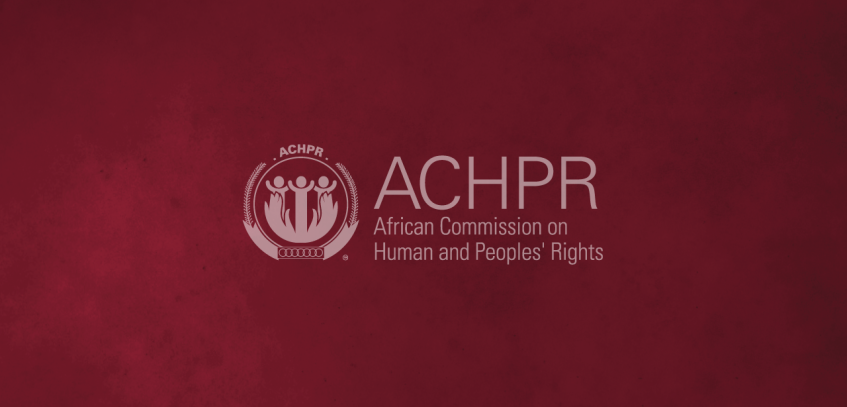25 November 2022, Banjul, the Republic of The Gambia
The Special Rapporteur on the Rights of Women in Africa, Honourable Commissioner Janet Ramatoulie Sallah-Njie, on behalf of the African Commission on Human and Peoples’ Rights (the Commission), and on her own behalf, is honoured to mark and commemorate International Day for the Elimination of violence Against Women on this day 25 November 2022.
The day kickstarts the annual 16 Days of activism against Gender-based Violence. It is an opportunity to reflect upon the strides made so far to eliminate violence against women and take stock of the challenges that we still face in eradicating the scourge. The theme for this year ‘Unite! Activism to end violence against women and girls’ is a call to action for all to come together to end violence against women and girls. This means that it is a matter of all hands-on deck with all stakeholders being urged to join in the fight to eliminate violence against women and girls.
The Commission unequivocally condemns the continued violence against women on the continent, which is especially compounded by new and emerging trends around violence against women online. Access to the internet and to technologies is fast becoming an imperative and an extension of the rights to access to information, association, education and other fundamental rights. It is thus important for women and girls on the continent to freely access technologies without fear of violence or intimidation. A significant number of women who access the internet find themselves under attack in various ways from cyber stalking, trolling, sexual harassment, blackmail through the threat of disclosure of personal information which results in self-censorship and withdrawing from the internet. The use of deep-fakes which creates believable but false pictures or videos about an individual is also used to attack and shame women. Some of the threats carried out online result in offline attacks through tracing of personal data. Intersectional identities of women, also exacerbates their vulnerability to digital violence, for example political participation, activism, disability or youth. A recent example is the manner in which women candidates in the 2022 Kenya general election were allegedly attacked, harassed and shamed online as a way of discouraging women’s participation in politics. The same concerns for offline violence which include patriarchal and stereotypical views of the role of women in society and the perpetuated culture of silence are present online, intimidating women into underreporting about their experiences and choosing to disengage.
Recalling Resolution 522 on the Protection of women against digital violence in Africa ACHPR/Res. 522 (LXXII) 2022, the Commission reiterates its concern over the increasingly gendered nature of digital violence. The theme for this year Unite! Activism to end violence against women and girls, calls for a holistic approach to ending violence, which within the context of digital violence includes service providers, international and regional mechanisms, governments, civil society organisations, activists and every individual.
In the Guidelines on Combatting Sexual Violence and its Consequences in Africa, the Commission lays out the due-diligence principle, where States are enjoined to adopt the ‘necessary legislative and regulatory measures to act with due diligence to prevent and investigate acts of sexual violence committed by State and non-State actors, prosecute and punish perpetrators, and provide remedies to victims’. Additionally, States are supposed to put in place psychological support for women who are survivors of violence. These Guidelines are applicable to sexual violence that takes place digitally as well and States are urged to follow the Guidelines in creating frameworks for combatting digital violence.
The Commission therefore takes this opportunity to call upon States to close the gaps created by the vastly evolving technological landscape by enacting durable laws that take into account digital violence. It also calls upon States to create frameworks for the investigation and prosecution of incidents of digital violence which involve the cooperation of internet service providers. States and civil society should work hand in hand to ensure that information and awareness is put in the hands of women and girls so that they are aware of what constitutes digital violence, and the available avenues for redress.
The Commission remains committed to the elimination of all forms of violence against women and girls, with the Special Mechanism of the Special Rapporteur on the Rights of Women available and open to working with all stakeholders to make this a reality. It calls upon all stakeholders to ensure that the activism to eradicate violence against women is not confined to 16 days out of a year, but should continuously be a priority, in order to make sure that violence is completely eliminated.
Honourable Commissioner Janet Ramatoulie Sallah-Njie
Special Rapporteur on the Rights of Women in Africa of the ACHPR








